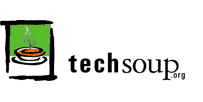 Microsoft’s cash cows of Outlook, Word, Excel and PowerPoint continue to sell hundreds of millions of copies. OpenOffice may offer a free, open source alternative, and Apple has its iWorks suite, but in terms of numbers they are relatively small. The latest version of Microsoft Office – version 10 – stores your documents on the internet so that they can be accessed wherever there is a connection. OpenOffice allows you to run a copy of itself, plus all your documents, from a USB drive. Both products, however, are inextricably linked to the traditional PC.
Microsoft’s cash cows of Outlook, Word, Excel and PowerPoint continue to sell hundreds of millions of copies. OpenOffice may offer a free, open source alternative, and Apple has its iWorks suite, but in terms of numbers they are relatively small. The latest version of Microsoft Office – version 10 – stores your documents on the internet so that they can be accessed wherever there is a connection. OpenOffice allows you to run a copy of itself, plus all your documents, from a USB drive. Both products, however, are inextricably linked to the traditional PC.
A new option is emerging, however. After years of dominance by Microsoft, the way we use computers for everyday tasks is in the midst of a huge transition. As we shift to using applications that are online only, we are entering the age of the cloud and one of the main challengers to Microsoft in this new race is Google Apps.
ICT Champions Julie Harris and Mark Walker complied a review of Google Docs for the Civil Society magazine in summer 2010, which is available now as a free download from this site. Take a look now to see how it works and what they think it can offer.
 It’s hard times for everyone out there and I’m being asked to talk more and more about how socal media can help you find work. Here are some simple ideas to get you going, based on the use of LinkedIn, Twitter and blogging. There are lots of things you can do but I have tried to emphasise simple ideas that are practical and achievable.
It’s hard times for everyone out there and I’m being asked to talk more and more about how socal media can help you find work. Here are some simple ideas to get you going, based on the use of LinkedIn, Twitter and blogging. There are lots of things you can do but I have tried to emphasise simple ideas that are practical and achievable.  Is it safe to store your information on the internet? Can you trust Google, Microsoft or any other other big cloud computing providers? Is it legal to store your data online? Despite some of the obvious advantages to moving some or all of your computing services onto the web, these are the sorts of questions which many people are asking before making the switch.
Is it safe to store your information on the internet? Can you trust Google, Microsoft or any other other big cloud computing providers? Is it legal to store your data online? Despite some of the obvious advantages to moving some or all of your computing services onto the web, these are the sorts of questions which many people are asking before making the switch.  David McCandless is the author of
David McCandless is the author of 
 A new one day course on 2 June will include a practical social media surgery to help build confidence in use of social media websites and show how local groups benefit from the latest social media tools.Just about everyone has heard of Facebook and Twitter, but do you know how they can help community development, not for profit organisations and volunteer groups?
A new one day course on 2 June will include a practical social media surgery to help build confidence in use of social media websites and show how local groups benefit from the latest social media tools.Just about everyone has heard of Facebook and Twitter, but do you know how they can help community development, not for profit organisations and volunteer groups? 




 We all know how to waste time and we all know that the latest techie gadgets seem the consume the lives of some people that we know. But is it better to allow staff and volunteers to have access to Facebook, Twitter or other online tools? Or will they spend their time mucking about looking at pictures of cute kittens when they’re meant to be writing the next funding bid? An article on Socialnomics looks at this questions and says that it is better to offer access, and that it can make your work more effective.
We all know how to waste time and we all know that the latest techie gadgets seem the consume the lives of some people that we know. But is it better to allow staff and volunteers to have access to Facebook, Twitter or other online tools? Or will they spend their time mucking about looking at pictures of cute kittens when they’re meant to be writing the next funding bid? An article on Socialnomics looks at this questions and says that it is better to offer access, and that it can make your work more effective.



